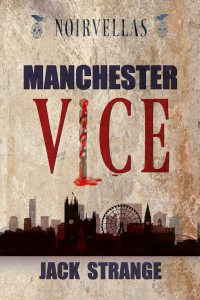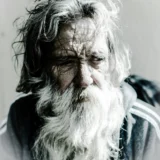
Tainted Love by Jack Strange
Based on an original idea by Barny Mukherjee
A mother’s love for her baby can overcome anything.
Even if her baby does something evil and repugnant, she’ll love him.
That’s what I thought those twenty-one years ago as I cradled Samuel in my arms for the first time.
But I’m getting ahead of myself.
It all began in the jungles of Bolivia on a remote trail once trodden by Colonel Percy Fawcett, the famous explorer. I was there to study the Kangotho people, a small tribe which had only recently become known to the outside world. I’d been invited along by a friend of mine, a student of linguistics, who wanted to learn their language.
I was a young anthropologist keen to make a name for herself, and it seemed the ideal opportunity for me to do so.
I remember my excitement when, after weeks of arduous trekking through the dense Bolivian jungle, we finally arrived at their settlement. It consisted of twenty yurt-like huts in a clearing with small campfires burning among them.
The tribe must have had lookouts around their village, for no sooner had we seen it than we were surrounded by a group of men dressed only in loincloths and wielding weapons.
My excitement was immediately replaced by fear, especially when a spear was thrust under my chin. I retreated until my back came up against a tree. The man wielding the spear pressed the sharpened tip of it into my throat with careful force: he didn’t puncture my skin, but made clear to me the folly of attempting to escape.
The only movement I dared risk was to swivel my eyeballs to one side. When I did, I saw that Craig, my colleague, was similarly backed up against a tree.
His captor said something in a guttural tongue that sounded hostile.
Craig responded as best he could in sign language. Whatever he did, it worked, and the weapons were lowered. He then reached into his rucksack. As he did so, the weapons were raised again. Very slowly he extracted his hand from the rucksack. He was clutching a piece of dried salted pork, which he offered to our captors.
That was our ticket to acceptance, meat being a most precious commodity to the Kangotho.
Once the native people had decided we weren’t to be treated as enemies, they came up close to us and stroked our backs, this being the customary way of giving a friendly greeting in their culture.
All the Kangotho men in turn – and later their women and children – ran their fingers through my long blonde hair. They are a tribe of dark-haired olive-skinned people, and it seemed they had never seen a blonde before.
Over the weeks and months that followed, we studied them. They were a genuinely stone-age tribe, one of the few that still survives unaffected by the west.
I assumed that, other than for their language and customs, the Kangotho had nothing to tell me about the world we live in.
How wrong I was.
They could have warned me about the Shasha if only I’d been prepared to listen to them.
The first time I heard about the Shasha it was late at night, and we were sitting around one of their campfires. Craig and I were invited to join some of the men in their occasional pastime of taking an evil-looking fungus, but we politely declined. The men believed it gave them the power to see into another world. Obviously I thought otherwise. Now I’m not so sure.
Archanis, one of the tribe’s elders, took a good dose of the fungus and seemed to sink into a trance, after which he gradually came round. With the light from the campfire flickering over his face, he stared hard at the trees on the outskirts of the settlement and pointed.
“Shasha,” he said, and, in his own language, which by then I understood to a degree, he added: “beware the Shasha. Stay away from him.”
I looked where he was pointing and thought I saw a pair of eyes gleaming in the shadows.
The following morning Craig explained to me he’d learnt that ‘Shasha’ could be literally translated as ‘the ghost who walks’. I have since discovered that this is, at best, a very approximate indication of what a Shasha is. You could call the Shasha the undead, or a zombie, but neither of those terms would really do it justice. None of them do.
No, the Shasha is simply the Shashsa.
A few days later I wandered a few yards from the outskirts of the settlement and saw a young man who looked like one of the tribe. I hadn’t seen him before, which surprised me, as I’d made a point of getting to know everyone in the village.
My instinct was to turn and flee – after all, I was alone, and he could have been hostile.
However, he smiled disarmingly and said:
“Ukar Kangotho, ule tharpar?”
I was fluent enough in their language by that time to understand that he meant:
“You are not Kangotho, who are you?”
I explained I was a visitor and asked who he was.
“My name is Veshi,” he said, “and I am Kangotho but I am not allowed to live with the tribe. I am an outcast.”
“Why?”
“They don’t understand me. We could spend some time together and break bread. Would you like that?”
I saw this as an opportunity to learn something more about the tribe from a different perspective, that of the exile, so to speak, and agreed.
I had another motive for agreeing: Veshi was charming, good-looking, and preternaturally magnetic. Of course, as an anthropologist I couldn’t get involved with a member of a people I was studying – that would have been unprofessional, to say the least.
But I managed to convince myself there would be no harm in merely spending time with him, and that I was only doing so in order to learn more about the mysterious Kangotho people.
He led me far into the jungle and I became concerned for my safety, but he took my hand, smiled at me, and was so reassuring that I placed my trust in him.
Eventually we reached a yurt-style hut like the others I’d seen.
Veshi took me inside. Like all the Kangotho homes, it was Spartan, airy, and spotlessly clean.
He got a loaf of bread from a shelf, broke it in half, and sat down cross-legged in the middle of the hut. I sat facing him, and he handed me half the loaf. We then followed the native tradition of eating the bread (which was similar to a coarse form of rye bread) and chatting.
“You live on your own?” I asked.
“Yes, there is just me here,” he replied.
“Do you get lonely?”
“Sometimes. But I have the jungle for company. There are always sounds to hear and things to do. I’m glad I met you. It’s a long time since I last spoke to a human. These days the animals and plants are all I have to converse with.”
He leaned forwards, took a lock of my hair in his hand, and ran it through his fingers.
“I’ve never seen hair like yours,” he said.
“It’s common where I come from.”
“Where is that?”
“Beyond the jungle.”
“Ah. You come from the edge of the universe. No wonder you are so different.”
After we’d talked for a couple of hours he led me back to the Kangotho village.
“Don’t let them know you’ve been with me,” he said, as I left him.
“I won’t.”
However, my attempted secrecy was in vain, for as soon as he saw me, Archanis said:
“You have spent time with the Shasha.”
At first I didn’t understand. Then it dawned on me: he meant Veshi; Veshi was the Shasha.
“No, I have spent time with a man,” I said firmly. “A nice intelligent man called Veshi.”
His face darkened.
“Veshi is Shasha,” he said. “No good can come of it.”
And he stormed off into his hut.
The Kangotho have a wonderful trait we could all learn from: they do not bear grudges, so it was not long before Archanis had gotten over his fit of pique and was talking to me as if nothing had happened.
There was only one other occasion when he referred to the Shasha, and that was some weeks later, when I was about to leave the tribe.
Until that time I continued to see Veshi, and it shames me to admit that I found myself drawn to him in a most unprofessional way.
In fact, to put it bluntly, I got myself pregnant by him.
I thought I’d keep it quiet and have an abortion when I went back home but Archanis was onto me right away.
“You are pregnant with the Shasha,” he said, shaking his head. “No good will come of this.”
The next day Craig and I were due to leave. We said our goodbyes to our new friends and made the difficult trek back along the forgotten trail to an airstrip, where we were helicoptered out by a geologist working for an oil company. He’d agreed to help us as a favour.
When I got back home to Boston, Massachusetts, I changed my mind about the abortion.
It’s easy to consider killing your unborn child in theory, but in practice it’s a different matter – at least, it was to me.
I spent two months writing up my findings about the Kangotho, got them published, and landed an assistant professorship at Harvard. Not bad for a twenty-nine year old – things were really rocking for me!
My belly grew large and in no time at all it seemed I was due.
Then one afternoon I was hanging around at home in my flat expecting my waters to break when it all went horribly wrong.
I got this excruciating stomach ache. Bent double with pain, I took my cell-phone from my bag to ring the doctor. I never got the chance. The pain got so intense that I dropped the cell-phone and fell to the floor gasping like a landed fish.
All I could manage to do was lie on my back, thinking I must be dying.
Along with the pain there was this sensation like having a buzz-saw in my womb. I writhed in agony.
In a moment of respite from the worst of the pain I pulled up my top and stared at my bare belly to see if it looked any different.
It did.
It’d developed a secondary bulge on top of the pregnancy bulge it already had, as if my baby’s head was trying to emerge directly from my tummy instead of by the usual route.
I put my hand on the bulge. It was moving, sliding around my insides. As I ran my fingers over it, I felt something beneath my skin. It was a mouth.
A mouth, moreover, with sharp teeth that were chewing away at me, scraping and biting my insides.
I tried to scream for help, but lacked the strength to do so, and in any event, I passed out from the pain.
When I came round, the bulge on my tummy had become a small volcano spewing blood and lumps of tissue. The sight was so disgusting I threw up.
Then, even worse, my baby’s head popped up from of the mouth of the volcano. He was covered in my blood, grinning, and licking his lips.
He got his arms out of the opening he’d made and sort of pushed himself from the wound.
Some instinct – a mother’s love, I suppose – made me hug him to my breast where he soon fell asleep.
At that point I found the strength to reach for my cell-phone and call for an ambulance.
I’d seen a true-crime feature on television in which a baby had been stolen from the mother’s womb. The thief had done it by carrying out a caesarean on the pregnant mother.
I told the medics and the police someone had attempted to do that to me.
Implausible as my story was, it was more believable than the truth, so it came to be accepted.
Samuel is a man now.
It was hard raising him, because he needs human flesh.
He’ll eat animal meat at a pinch, but every so often he has to feast on meat taken fresh from living people.
And I’ve had to help him get it.
As I said, a mother’s love can overcome anything.
He’s out at the moment.
If he’s with your daughter, I hope he’s with her for her company, because if he isn’t, she won’t be coming home tonight.
Or any other night.
*******************************
Tainted Love is © Copyright 2017 by Jack Strange. Permission to publish this story has been granted by the author.
The latest from Jack Strange
 Thatchenstein
Thatchenstein
THE STORY SO FAR…
In Celebrity Chef Zombie Apocalypse, Professor Ted Forsyth made an amazing breakthrough. He created the ‘Lazarus Engine’ which could bring the dead back to life. Forsyth and his nephew Robert Turner tested the machine on a dead cat called Henderson, and on a dead celebrity chef called Floyd Rampant.
The Lazarus Engine brought Henderson and Rampant back to life but also turned them into sex-crazed flesh-eating zombies.
Rampant killed and ate the hapless inventor and his nephew, and then embarked on a crusade to conquer the world by making an army of undead celebrity chefs to do his bidding.
His plan was thwarted by Tarquin Camemblert, the British Prime Minister.
Camemblert lured Rampant and his zombie army to the town of Huddersfield, West Yorkshire and bombed the town out of existence.
The only zombies who survived were Rampant, his two lieutenants, and Henderson, the zombie cat.
Wally Pratt, a distant relative of Professor Forsyth, inherited his house, and the Lazarus Engine with it. Pratt was a member of an extreme right-wing political party called NS18.
In order to earn kudos in the party, Pratt made a creature from recycled body parts which looked like Margaret Thatcher. He brought it to life using the Lazarus Engine, and the former great leader was reborn.
He had created Thatchenstein.
Now read on….
Thatchenstein, the third book in this unique horror comedy series by Jack Strange for KGHH Publishing, is the best yet and ends with a powerful climax.
 Also coming soon from Mr. Strange – NOIRVELLAS: MANCHESTER VICE from Coffin Hop Press
Also coming soon from Mr. Strange – NOIRVELLAS: MANCHESTER VICE from Coffin Hop Press
Follow Jack Strange on Twitter @jackstrange11.
Read My Profile









